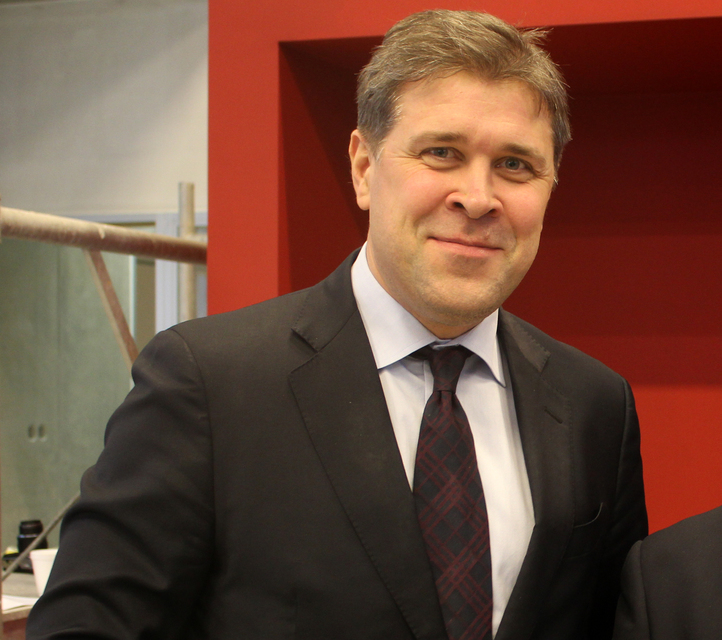Mixed economic tidings
Bjarni Benediktsson, Icelandic Minister for Finance and Economic Affairs. Photo: Sigurður Bogi Sævarsson
Iceland can realistically expect to see its overall national debt fall under 45% of GDP by 2018, according to the Icelandic Minister for Finance and Foreign Affairs, Bjarni Benediktsson.
Rising State revenues
As reported in Morgunblaðið yesterday, State revenue for 2014 totalled ISK 665 billion (approx. €4.5 billion), the third highest figure since 1998 and a 22% increase on 2013. According to Benediktsson, the priority for using these extra funds must be to pay off Iceland’s debts and build up infrastructure.
A report published by the National Debt Management Agency (NDMA) on Monday puts Iceland’s current national debt at ISK 1.5 trillion (approx. €10.2 billion), i.e. 75.5% of GDP. Benediktsson is confident that this figure can be brought under 45%, maybe even as early as 2018.
On the subject of infrastructure improvements, the Finance Minister specifically mentions planned work on a new national hospital and greater investment in public transport. He also reaffirms the current government’s intention to simplify the tax system and bring in further income tax cuts.
Trade deficit hampering growth
Morgunblaðið also reports today that economic growth in Iceland for 2014 is lower than forecast and down on 2013.

Iceland's heavy trade deficit is cancelling out some of the effects of improved performance as regards private consumption and investment. Photo: Sigurður Bogi Sævarsson
With other economic indicators on the positive side of things, economic growth has been dragged down by a heavy trade deficit. Iceland has now registered a trade deficit for six years in a row, following a decade of almost uninterrupted trade surpluses. In 2014, imports grew by 9.9%, while exports grew by just 3.1%. Iceland’s trade deficit for 2014 was 6.4% of GDP.
While on the whole positive about Iceland’s various growth indicators, Jón Bjarki Bentsson, an economist at Íslandsbanki, states that “growth is not strong enough to push Iceland’s economy into a boom. […] The figures show that the Icelandic economy is not far from some sort of balance, but the scale of the country’s trade deficit is a real concern.”








